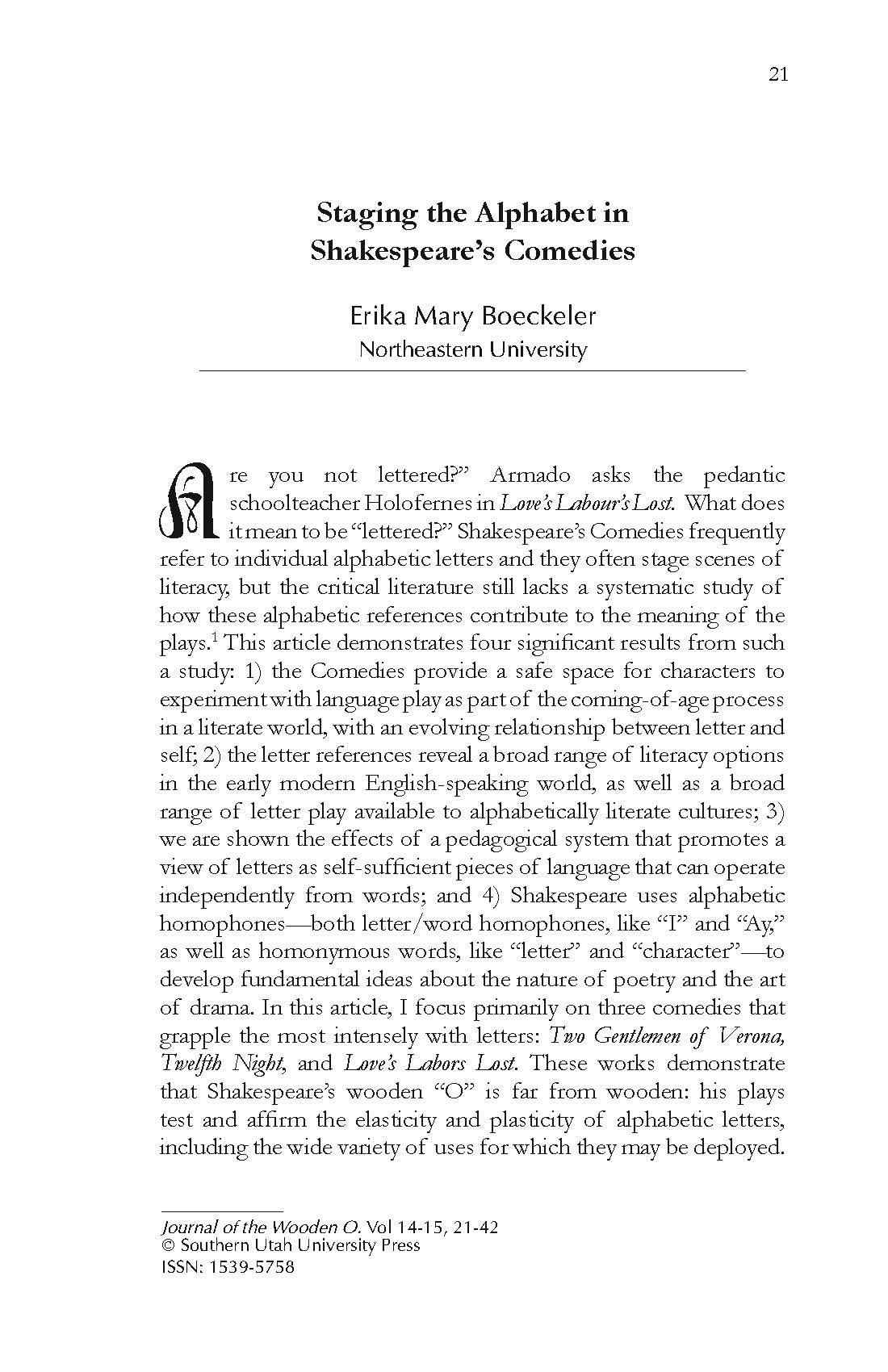Staging the Alphabet in Shakespeare’s Comedies
Main Article Content
Abstract
"Are you not lettered?” Armado asks the pedantic schoolteacher Holofernes in Love’s Labour’s Lost. What does it mean to be “lettered?” Shakespeare’s Comedies frequently refer to individual alphabetic letters and they often stage scenes of literacy, but the critical literature still lacks a systematic study of how these alphabetic references contribute to the meaning of the plays.1 This article demonstrates four significant results from such a study: 1) the Comedies provide a safe space for characters to experiment with language play as part of the coming-of-age process in a literate world, with an evolving relationship between letter and self; 2) the letter references reveal a broad range of literacy options in the early modern English-speaking world, as well as a broad range of letter play available to alphabetically literate cultures; 3) we are shown the effects of a pedagogical system that promotes a view of letters as self-sufficient pieces of language that can operate independently from words; and 4) Shakespeare uses alphabetic homophones—both letter/word homophones, like “I” and “Ay,” as well as homonymous words, like “letter” and “character”—to develop fundamental ideas about the nature of poetry and the art of drama. In this article, I focus primarily on three comedies that grapple the most intensely with letters: Two Gentlemen of Verona, Twelfth Night, and Love’s Labors Lost. These works demonstrate that Shakespeare’s wooden “O” is far from wooden: his plays test and affirm the elasticity and plasticity of alphabetic letters, including the wide variety of uses for which they may be deployed.
